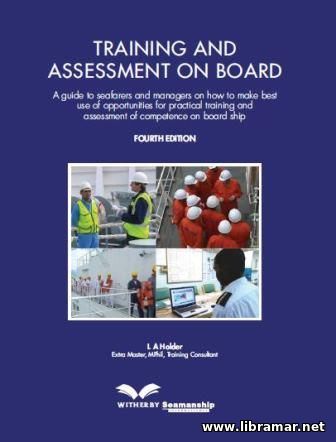 The original edition of this publication was released in 1991 to describe how to make the very best of the training and education opportunities available on board. Since then, three more editions came and each time the content was revised and new information added. The introductory part of the document will give readers some necessary insight into the relevant regulatory framework including the ISM Code and MLC Convention.
The main part of the material is divided into nine chapters, the first chapter dealing with proper organization of the training on board any ship. The second chapter provides some valuable advice to the shipboard staff assigned the trainee roles. The third chapter is devoted to the resources including CBT, i.e. computer-based training, video training, planning of the training, assessment and other aspects, while the fourth chapter addresses the record keeping.
The competence assessment, opportunities for training and associated responsibilities are dealt with in the next two chapters. the remaining chapters deal with the senior officers and Masters, company training policies, and other information. Four appendixes supplement the main content of the booklet, giving necessary examples.
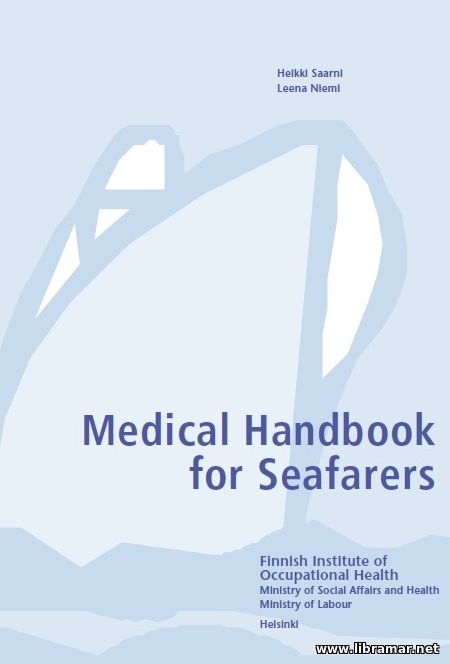 When a vessel somewhere in the middle of the ocean, it is very difficult to get a doctor on board or to transport the ill or injured patient ashore. So, the success of the medical treatment depends on the medical know-how and treatment facilities available on board. The Master is officially responsible for the treatment given to people on board the ship. The crew's level of medical training is determined by the national and international regulations like STCW 95. In addition, the ship has necessary medical equipment.
The international Radio Medical system was developed to compensate for the lack of well-trained medical staff on board. Via the service system of Radio Medical, a doctor on shore can be consulted free of charge. Improved telecommunication systems have facilitated direct contact between the crew and the shipping company's occupational health service or, for example, a designated health care facility. It is crucial that the person in charge of treatment on board is capable of recognizing the patient's symptoms and of following the patient's condition. Without these skills, describing the patient's condition to Radio Medical's doctor on land will not be successful. The Radio Medical system has been used in seafaring already for a hundred years. Video transmission, made possible by modern telecommunications technology, is not expected to significantly change the basic situation of on-board treatment.
All the treatment given on board depends first and foremost on the know-how of the crew members. The equipment on board and even the finest communication technology are only complementary.
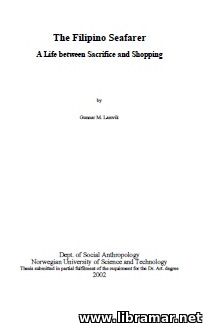 Here is another publication written about working with Filipino seafarers. The book starts with some introduction followed by a chapter describing the migration issues, namely different perspectives on migration. In the next part of the book the author tries to understand and explain to the readers why people go to the sea and who are leaving - here you will find the info on the inducements and preconditions for migration.
The following part is dedicated to the life and work at sea - you will get to know what exactly characterizes a vessel, get a portion of the seafaring experience, etc. The last three chapters of the publication address the cultural repercussions that may be caused by the life and work at sea, various economic repercussions that may be caused by overseas employment, and, finally, the Filipino seamen.
This document was prepared by Gunnar Lamwik from the Norwegian University of Science and Technology, and may be of some interest for those who work with the crew members from Filipinos as it contains some valuable advice on how to build the good relationship and communication system for everyone's benefit. In fact, most of the information would be equally to the seamen from any other country.
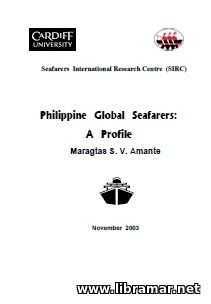 This document was prepared by Maragtas Amante and published by the SIRC, i.e. Seafarers International Research Centre. Although the Philippines is a country providing more than a quarter of the total number of the world's seafarers who are employed on the ships trading internationally, by today it has not been possible to find reliable information concerning the Filipino seamen and their circumstances in a single publication.
Such information would definitely be very valuable for the crew managers of the shipping companies, as well as officers of international associations, agencies and any other parties involved. The present report is intended to remedy the existing deficit. There were some separate surveys conducted years ago of seamen and students enrolled in a number of maritime colleges with the ultimate purpose to generate a profile of Filipino seafarers that would be dependable enough to rely on.
The results of the subject survey were amplified by the interviews with some crewing managers, trade union officials and senior government officers and by a search of available relevant documentation. This report starts with the introduction and a chapter on the survey mentioned above. Among the topics included in the publication there are recruitment, hiring and working on board, training and education, pay variations etc.
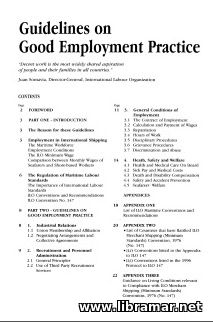 Nowadays, the major focus in shipping is considered to be "human element" issues, such as safety management and training. Society at large demands high performance standards from the entire transport sector, and the adoption and further implementation of good employment practice is a necessary part of meeting those demands.
The performance of individual seafarers, shipping companies and the industry- as a whole is as dependent on adherence to good employment standards as it is on compliance with technical regulations. The shipping industry was amongst the first to adopt comprehensive international employment standards following the establishment of the International Labour Organization in 1919. Maritime employers, co-ordinated by ISF, have actively participated in the development of those standards since the first ILO Conference, and continue to do so today. The great majority' of shipping companies provide terms and conditions of employment to their seafarers which match, and in most cases comfortably exceed, best practice ashore. Seafaring is a unique profession, and the industry" offers well-paid regular employment and an interesting and rewarding career to seafarers of all nationalities.
The members of ISF intend to ensure that the industry's high standards of employment are maintained. It is with these thoughts in mind that these Guidelines on Good Employment Practice have been produced for the assistance of the shipping industry.
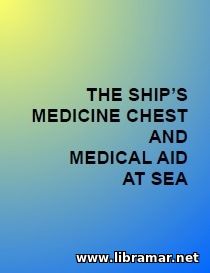 The edition of the publication that is hereby presented to the attention of our readers continues a brilliant tradition extending back for more than a hundred years. The very first edition of the present book was released by the Marine Hospital Service in 1881.
All previous editions provided readers with the step-by-step instructions that were covering a huge variety of illnesses that could be faced underway. With this new release, the author's approach has changed a bit, taking into account all recent changes in medical practice and technology. The number of "how to" medical aspects included in this book has been limited; instead, the publication now is intended to identify when exactly there may be need for medical consultation, and it also describes how to perform a very basic physical examination and communicate all medical findings to the experts on shore.
For sure, effective communication is one of the key aspects of consultation or medical treatment. The book is also focusing on the prevention of both chronic and acute diseases as it can significantly improve the quality of the mariners' life at sea and maximize the productivity of the crew members as well as their ability to perform the duties assigned to them.
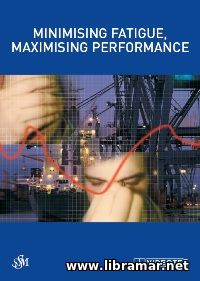 This training course is dealing with the fatigue. Recently, the fatigue has been eventually recognized as a potential contributor and sometimes a main cause to the human errors. In the past, the industry people used to believe that the good training, willpower and professionalism is enough to prevent fatigue.
However, the results of the several researches conducted in this field, have shown that fatigued people work worse and there is a higher risk of the casualties and accidents. The main purpose of the training set consisting of this booklet and associated video training film, is to provide good and understandable explanation of the major causes of the fatigue and effects the fatigue may have.
The training is also intended to demonstrate how the management strategy shall be put in place to improve the effectiveness of the workers - this all will contribute to safeguarding of the human life, property and protection of the environment. The content of the course covers the negative effects and causes of the fatigue considered specific to the maritime industry, recognizing fatigue and implementing successful FMS, i.e. fatigue management system, and other important aspects.
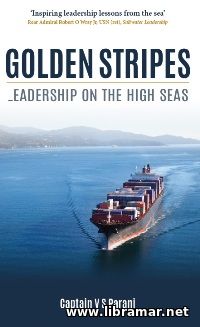 A perfect volume telling readers about the exceptionally successful leadership. The author of the book has written it in a very comprehensive and focused way trying to capture the fundamental importance of every single line. The book has been very well met by the seafarers who noted the temperament and persistence of the author, and found the content so enjoyable.
Most of the readers have recommended this book to every ship officer. In fact the leadership is very important in any sort of occupation. However in seafaring it can mean the difference between life and death. Unlike so many other publications released in connection with the leadership, this book by Captain Parani is written by person who really knows the ropes. Moreover, and what is maybe even more important, this person has a genuine spirit of a leader.
Even though merchant ships of today carry ninety percent of the whole world's trade, the mariners running them have little to no guidance on leadership, and this can eventually result in catastrophes, as it was with Titanic. With modern technically sophisticated vessels costing dozens of millions, seamen require leadership advice throughout their career, and this is what is offered in this volume...
|







